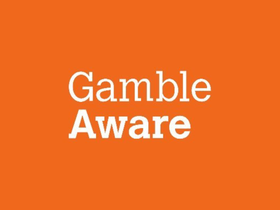Whether you bet on your sport or other sports, even making one bet may break the rules and hurt your sport, your brand, your mental health, your finances, and your future. Know and follow the rules.
The NCAA said it launched its first sporting wagering e-learning module this month, as it looks to educate more than 500,000 current and prospective student-athletes on the harms caused by problem gambling, as well as the harms and risks that sports betting poses to gaming integrity.
NCAA said its Sports Wagering Education module “is a free, interactive tool that immerses the learner in an educational experience with helpful information, scenarios, Q&As, and resources, all delivered by former student-athletes, for student-athletes.”
The module begins with an introduction by Zaire Franklin, linebacker for the NFL’s Indianapolis Colts and a former football student-athlete at Syracuse University.
“Sports betting is everywhere,” Franklin said. “Your friends, family, and classmates are probably talking about it. Ads are all over the place talking about it. People are hitting you up on social media about it.
“For you, though — there’s a catch. Whether you bet on your sport or other sports, even making one bet may break the rules and hurt your sport, your brand, your mental health, your finances, and your future. Know and follow the rules.”
Two additional student-athletes — Mikala Hall, who played basketball and earned an MBA from Central Michigan University, and Joshua Butler, who played football and earned an MBA from the University of Sioux Falls — also contributed to the program.
A pair of surveys commissioned by NCAA President Charlie Baker played an important role in creating the module. According to the NCAA, the surveys helped guide the national office to identify key topics of discussion surrounding sports betting.
Last month, the NCAA released the findings of one survey — where campus compliance directors were asked about their experiences on sports wagering issues. The association said Baker commissioned the survey “to gain a deeper understanding of the education compliance officers provide at their campuses and how the NCAA could best support schools with enhanced educational initiatives, resources, and tools.”
The second survey, conducted before the compliance survey, focused on 18- to 22-year-olds in order to “better understand the prevalence of various sports wagering behaviors and attitudes among the peers of student-athletes.” NCAA found out from this survey that sports wagering was “pervasive” among the target population.
According to the NCAA, the second survey found that 58% of respondents had engaged in at least one sports betting activity. The survey also found that problem gambling is a problem among those surveyed — 16% said they had engaged in at least one risky gambling behavior, and 6% of respondents said they had lost more than $500 on sports betting in a single day.
“One of the first things I did when I took over as NCAA president was gather as much information as possible about sports betting on college campuses,” Baker said. “This educational resource is directly informed by that data.
“We believe this new program will help protect student-athletes from the risks that come with sports wagering. The data is clear that athletes with firsthand experiences connect with current student-athletes better than any other material we could develop, so we are incredibly grateful for their participation in this effort.”
The NCAA said it was in the process of conducting a national survey of student-athletes on sports wagering, their attitudes, and behaviors. It has also recently launched a campaign to encourage state lawmakers to enact laws designed to combat student-athlete harassment associated with sports betting.



